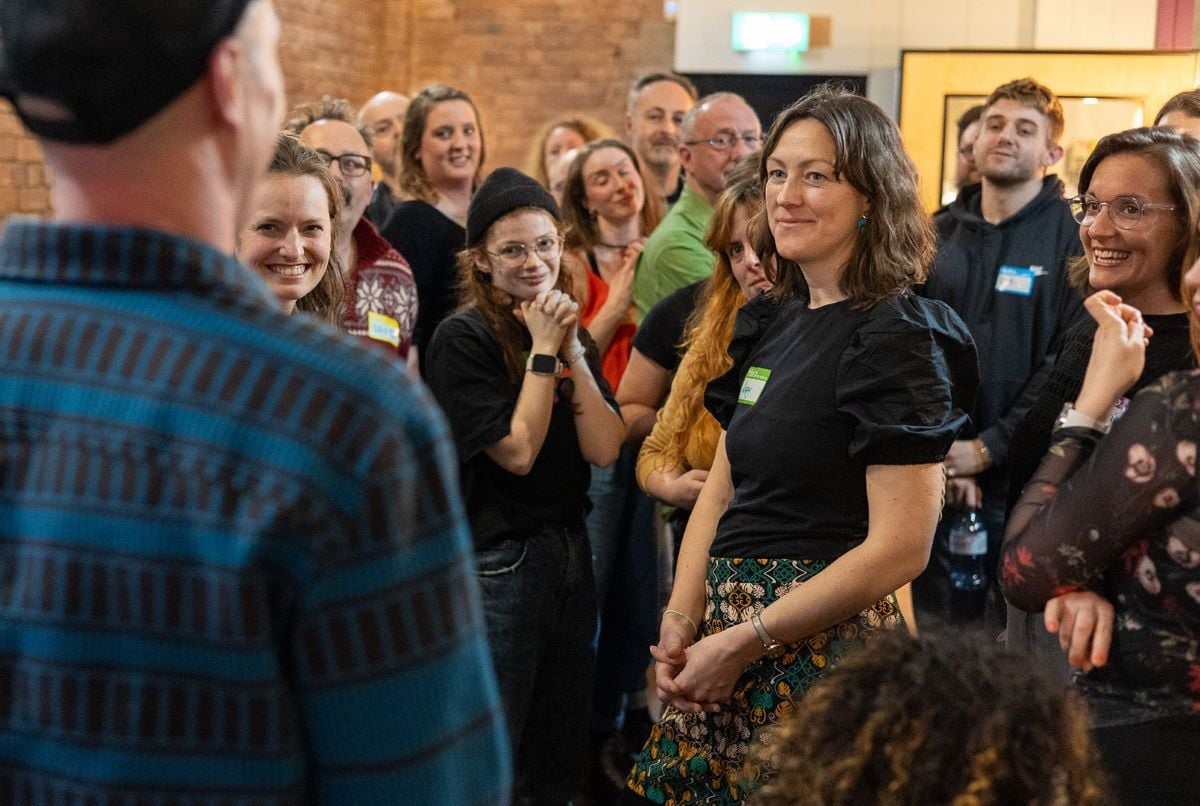
Launch of Failspace, an informal gathering for South West-based artists, making a playful space to embrace failure
Photo: Kyle Carter
Open recruitment to creative roles
Northcott Theatre in Exeter has said it will advertise at least one creative role on every production. Creative Director Martin Berry explains the thinking behind it.
As one senior colleague remarked: ‘It feels radical, but it isn’t really, is it?’ He’s right. Decades of the ‘little black book’ have led us to think it’s radical to advertise exciting important roles openly, so that opportunity is properly accessible.
It’s a balancing act. If we advertised every role, then how do those who have grafted to build relationships – and made work for and with buildings and producers – how do they get to build on their success and grow a career if every new role is recruited openly?
To that end, there’s an important place for direct approaches and re-appointments. By extension, it’s also crucial for producers and buildings to share intel about exciting artists they’ve worked with and are excited by.
Open calls for everything could create a dishonest context in which those with a pre-existing relationship are pitched against people new to the organisation, with the latter facing no real prospect of success.
Nurturing existing relationships
A highly respected director once said they thought theatres should always offer pairs of shows to a new director allowing them to approach their first show with artistic freedom and flair, relaxed and safe in the knowledge the second gig was secure – rather than tying themselves in knots trying to please the producer.
Nurturing existing relationships feels similar, in building trust, confidence and better art by artists who feel secure, validated and able to fail, learn and grow. That said, it’s critical there is space for new voices.
As with many entrenched approaches, a policy with clear parameters can be helpful in prising apart convention and making room. Hence we are committing to open callouts for at least one creative role on each Northcott-produced show. This is a minimum – we expect it will often be more than one role.
Powerful forces at play
As a new leader, I have a burning desire to elevate and employ people I have worked with during my freelance years. To honour their work, their commitment and how they stood by me and our crazy underfunded projects through thick and thin.
This currency of loyalty is a key lever in our industry, especially in early careers when working towards shared goals with youthful exuberance and a hoped-for financially sensible future is all we have. But it must be a balance.
Absolutely, elevate those people. They have worked for it and proven their passion and skills. The little black book is often full of brilliant, loyal people, who forged art together through blood, cheap wine and hardship.
But they are only the names of people encountered on the owner’s singular journey. By default, it’s a book skewed towards personal taste and lived experience. Space must be made for voices that are new to both the leader and the industry.
Some may fear the inherent additional risk in hiring someone new. But that would be to turn from one of the fundamental duties of artistic leadership, namely to nurture and support new voices. A new person on the team may need extra support, extra insight, extra time over lunch or coffee to talk, for you to sit with them through tricky periods of rehearsals or the daunting first production meeting.
Can't be taught
But assuming the new appointee has proven they can make and/or have the potential to make exciting work, which presumably is why they’ve been appointed, then the risk is not in what is made, but in a new artist simply not knowing how the system works: how to manage a larger budget; how to manage the proxemics of a larger stage; how to handle the meetings and challenges of fast-moving multi-layered tech rehearsals.
Unlike the artistry, all that can be taught and learned with support and opportunity on the job. It can’t be taught on a course. It is the duty of leaders to do that, to lean in and find the tricky yet vital balance between being hands off and hands on. If we are too busy to sit by the side of those we should be bringing through, literally and figuratively, then we have our priorities wrong.
One final thought: perhaps funders should hold us to account on this. Don’t get me wrong, nobody working in theatre would volunteer for more monitoring and reporting, but perhaps this metric matters at least as much as some of what we are currently required to measure.
A simple question could be asked: how many creative theatre-making roles did your organisation recruit this year through open calls? If nothing else, it would require producers to consider the importance of this and allow funders to discover a realistic picture of accessible opportunity in the industry.
Martin Berry is Creative Director and Joint-Chief Executive of the Northcott Theatre Exeter.
![]() exeternorthcott.co.uk/
exeternorthcott.co.uk/
![]() @ExeterNorthcott | @martinberry16
@ExeterNorthcott | @martinberry16
Join the Discussion
You must be logged in to post a comment.